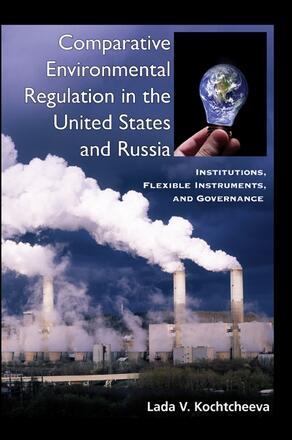
Comparative Environmental Regulation in the United States and Russia
Institutions, Flexible Instruments, and Governance
Alternative formats available from:
Explores how policy actors in the United States and Russia have developed flexible incentive-based instruments for environmental protection.
Description
As environmental problems continue to pose a threat to the well-being of people all over the world, achieving pollution control through innovative methods and at a lower cost becomes very attractive. However, cost-effectiveness and technical rationality are often at odds with political goals and policy traditions. Lada V. Kochtcheeva analyzes the introduction of flexible laws and regulations in both air and water quality policies in the United States and the Russian Federation from the 1960s to the present, and highlights the replacement of command and control systems with flexible instruments such as incentive programs, tradable permits, and pollution charges. With its rich comparative institutional analysis, the book contributes to the debate on institutional dynamism, policy innovation, and new modes of regulation, while simultaneously addressing the processes and attributes of good governance.
Lada V. Kochtcheeva is Assistant Professor of Political Science at the School of Public and International Affairs at North Carolina State University.
Reviews
"…an important contribution to the study of environmental regulations and instruments. It will be valuable to scholars and broader audiences interested in understanding the role of institutions in environmental policymaking. It sheds new light on the role of flexible instruments in environmental regulation in Russia and the United States. " — Political Science Quarterly